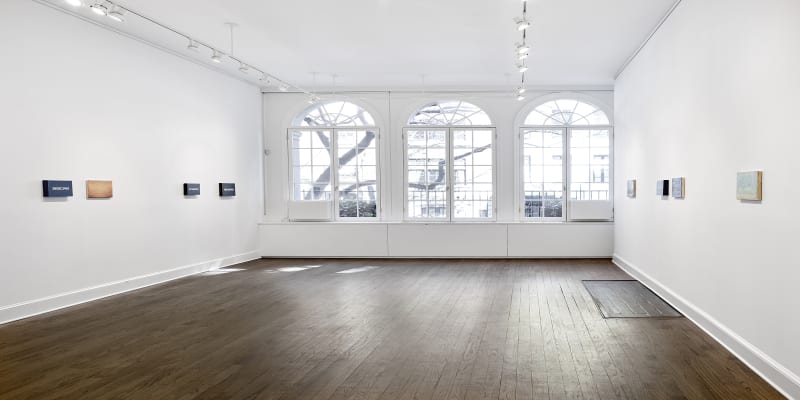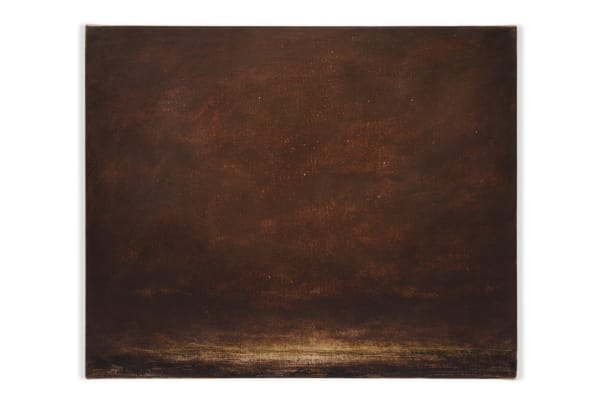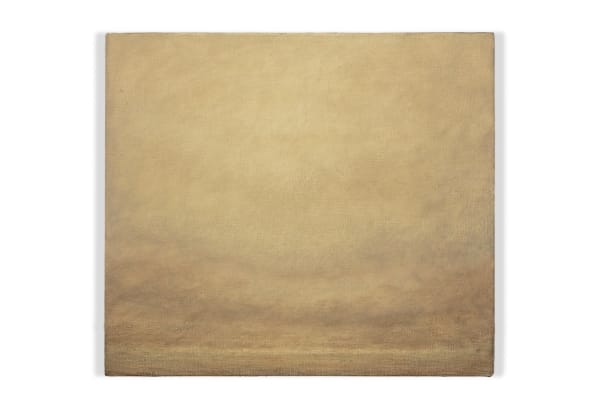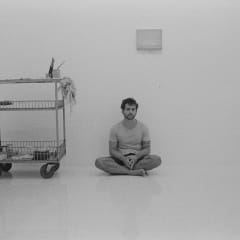Days and Horizons Lucas Arruda & On Kawara
Mendes Wood DM New York
March 3 — April 29, 2017
What at might first seem to be an unusual pairing– the date paintings of conceptualism’s late-great existentialist On Kawara, and a Brazilian painter born in 1980 who is predominantly given to depicting imaginary seascape horizon lines– is actually quite, if not heartbreakingly apt. The first, and perhaps most obvious point of contact is repetition, and variation within that repetition. Where Kawara was known to portray a given date on the day of that date, Lucas Arruda is largely, although not exclusively, committed to painting the same motif. In both cases, the works point toward the daily of practice of making art– not necessarily as an end in itself, but also as a way of negotiating life in a more general, and yet fundamental sense. Although both artists seek to if not arrest, then pay homage to the passage of that which they respectively depict– days and horizons– they flow beyond the ken of the paintings with the inexorability of a memento mori. Thus the pathos of this work can be located, at least in part, in its failure to arrest that which cannot be arrested. Another part can be found in the presumed trauma at the heart of both bodies of work– for as everyone knows, repetition, at least where Freud is concerned, always points toward a trauma. However, although both Kawara and Arruda’s work is, in varying degrees, autobiographical, the exact content of their respective autobiographies is negligible. What matters is the profoundly human compulsion that underlies them. That compulsion is, of course, the highly existential quest for purpose– which is distilled, by both artists, to an essence. It could be argued that in distilling that quest into a pictorial motif, they are putting it in brackets, actually suspending it, and rendering that compulsion absurd. But when all is said and done, what is suspended is more the noise that surrounds it. For one thing both bodies of work incontestably have in common is a capacity to create silence, to contain and transmit the meditative frame of mind which marked their very creation. And when I say creation, I mean in the wholly absorbed sense of making and crafting. For as is well known On Kawara personally painted, with preternatural precision, his date paintings, while the fact, the facture of making is evident in Arruda’s pictures. Thus the shared paradox of this work: despite the trauma at its core– a trauma, I suspect, that has less to do with a given personal experience than with the simple fact of being born– it is the stuff of silence. These paintings are liable to engender an extraordinary calm, a profoundly human and meditative peace, if you let them.
—Chris Sharp








